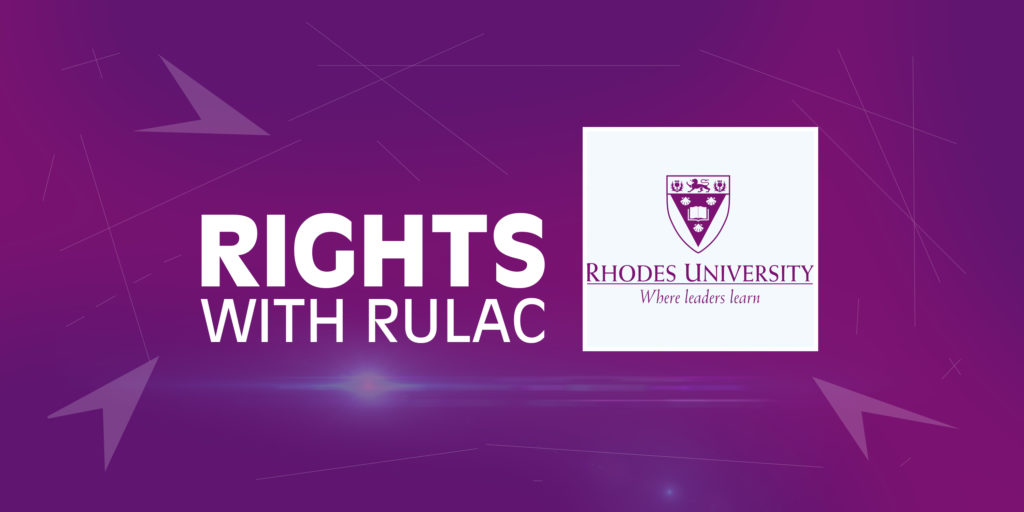By MHLELI KHOMO, Candidate legal practitioner Rhodes University Law Clinic
Over-indebtedness refers to the situation when the available information indicates that the consumer cannot pay the amounts due in terms of all their credit agreements. Over-indebtedness is determined by evaluating whether the consumer can meet their obligations, considering their financial means, prospects and overall commitments, and their history of meeting their obligations timeously.
Determining whether a consumer is over-indebted
The National Credit Act grants a credit provider the option of choosing an evaluation to be utilised during affordability assessments, provided it produces objectively fair assessments.
The two options (one still to become law) are:
- Debt review
- Debt intervention
Application for debt review
For a consumer to be declared over-indebted, the consumer must apply to a debt counsellor and submit a completed Form 16, which is an application by a consumer directed to the debt counsellor, for debt review. The consumer must provide the following information:
- Personal details;
- Total income received;
- Monthly expenses ;
- All debts;
- Living expenses;
- a declaration and undertaking to commit to debt restructuring;
- consent that the credit bureau conducts checks;
- confirmation that the information is true and correct.
This must be submitted to the debt counsellor, and a fee of R50 must be paid. Each consumer and debt counsellor can agree on the fee structure and enter a legally binding contract relating to the process.
The debt counsellor must notify all credit providers listed in the application and registered credit bureaux within five days after receiving an application. The counsellor must verify the information by requesting documentary proof from the consumer of all the submitted information or by contacting the relevant credit providers/employers. The debt counsellor must then evaluate the consumer’s circumstances and decide, within 30 business days, whether the consumer is over-indebted.
Determining if the consumer is over-indebted
Consumers are over-indebted if their total monthly debt payments exceed the balance derived after deducting their minimum living expenses from their net income. The basis of the minimum living expenses is a budget provided by a consumer and adjusted by the debt counsellor, who references the guidelines issued by the National Credit Regulator (NCR). To determine net income, statutory and other deductions must be deducted from the consumer’s gross income.
Where a consumer also seeks a declaration that the credit was given recklessly, section 80 must be referred to. The counsellor must consider, amongst others, the level of indebtedness at the time an agreement was entered into and whether, at that original time, the total debt obligations, together with the new agreement and minimum living expenses, surpassed the consumer’s total income.
Ultimately, Form 17.2 must be submitted by the counsellor, which informs the credit providers & credit bureau as to whether or not the consumer is over-indebted, whether any credit agreements were concluded recklessly, and whether the debt counsellor recommends debt restructuring. This must be done within five business days. Any debt intervention or rearrangement agreement reached between the credit provider & debt counsellor must be in writing and signed by the consumer, debt counsellor and credit provider.
Applying to court to be declared over-indebted
Section 86(9) allows a consumer to apply directly to court to be declared over-indebted if the application for debt review is rejected. This application must be submitted within 20 business days after receiving the rejection letter. Form 18 must be completed.
Debt intervention
Once section 86A of the National Credit Act becomes operational, an alternative procedure – debt intervention – will also be possible. Debt intervention will be for consumers who do not earn more than R7 500 per month, are not sequestrated or under administration, and are parties only to unsecured credit agreements totalling less than R50 000. An application will be made to the NCR by the consumer to be declared over-indebted and to follow a debt intervention process facilitated by the NCR. Debt intervention is designed to assist identified consumers for whom existing natural person insolvency measures are not accessible in practice.
The completion of the process
Once a consumer has satisfied all the debt obligations under every credit agreement subject to debt review, and that review is finalised, the debt counsellor must issue a Clearance certificate.


